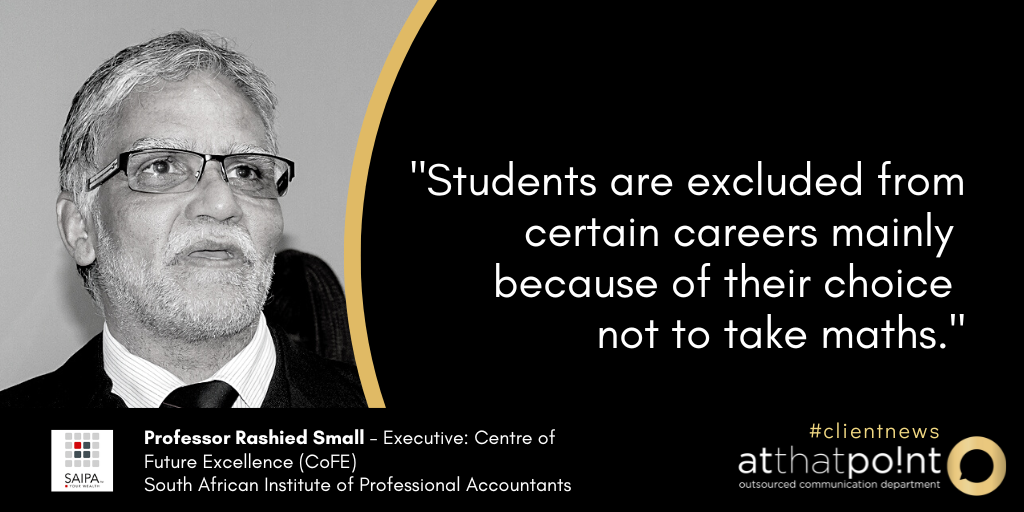|
Written by: Mighty M Mhlanga, IRMSA CRMPRAC Member
“Never let a good crisis go to waste”, Rahm Emanuel said during the 2008 global financial crisis. This catchphrase has been reprised by many who remain optimistic despite the current challenges we find ourselves in. The current landscape presents one of the most perplexing and difficult environments for individuals, business leaders and to a large extent, governments who must provide leadership and guidance under extreme stress and criticism. There is no magic bullet for a pandemic that literally shut down many, if not all industries and destroyed all economies, but as gloomy a picture as this is, there is a positive transformative aspect to this pandemic. My focus is on how government should use the current crisis to address some of the threats and identify positives or exploit opportunities that will assist in addressing our country’s triple challenges of unemployment, poverty and inequality, challenges which have been further exposed and exacerbated by the pandemic. According to the National Treasury, the South African economy is set to shrink by 7.2%, 2% more than the very high global contraction of 5.2%. This represents the worst recession since World War II and is likely going to remain so for quite some time. The South African Reserve Bank (Reserve Bank) has for the past few months been playing a pivotal role from a monetary policy point of view by reducing the repo rate in an effort to induce spending and stimulate economic growth. As good as this is, it is not enough on its own. The Reserve Bank Governor, Lesetja Kganyago has for the longest time been emphasising that government needs to play its role by implementing structural reforms and using the fiscal policy to support interventions introduced by the Monetary Policy Committee. Despite progress in some areas, government has largely failed to implement reforms. Lungisa Fuzile, the former Director General and now CEO of Standard Bank in one of his interviews mentioned the missed opportunity by government to roll out the broadband spectrum prior to COVID19 which would have meant better broadband access and speed, low cost of communication and data prices leaving money in people’s pockets which in turn would have induced aggregate demand in the economy. This is but one of many examples. In May, government announced massive COVID19 economic relief measures to the value of R500 billion, this sourced from the reprioritisation of the current budget, local funding sources, as well as international financing institutions. This package was largely aimed at addressing the healthcare crisis, assisting the vulnerable unemployed, protecting and creating jobs and saving businesses heavily impacted by the crisis. As expected, many citizens were hugely encouraged by this and had the hope that we can defeat the pandemic together with government. Some, though, criticised the lending from international funding institutions highlighting the nation’s already high debt levels. From a point of view of crisis response, I believe the funding will be critical if used for purposes mentioned by the President and re-emphasized by the Finance Minister in his supplementary budget. Unfortunately, we find ourselves again falling short when it comes to execution. The daily reports and news on allegations of corruption, irregularities, maladministration, fruitless and wasteful expenditure, flouting of procurement procedures are negatively impacting government’s ability to effectively implement these economic relief measures and reforms. The public is getting more and more impatient with government’s slow or lack of initiative to address corruption. Corruption presents a major risk to our ability to respond to the pandemic and our economy’s recovery. The inability to use borrowed funds for purposes they were borrowed for also represents a huge risk for our country which can have a multitude of effects such bankruptcy, inability to service our national debt and incapacity to fund critical initiatives to address the tripartite challenges. The current trajectory suggests that the above risks are expected to materialise, unless of course we act with a great sense of urgency. The president’s response to the much-publicised allegations of corruption was to authorise the Special Investigative Unit (SIU) to probe all corruption linked to the R500 billion COVID19 relief funds and help recover looted funds. As positive an intervention this is, it is not sufficient as a risk response. We need to urgently invest in preventative measures that deter potential corruption and also implement consequence management to deal with the corrupt individuals. This will build the required confidence in our government and their ability to see the nation through the pandemic challenges. Government’s role has never been more important than it is in today’s climate. Business and citizens rely on decisions made by government to subsequently make their own decisions. Another high national risk is uncertainty and unpredictability of government decisions that can render assumptions, strategies, and recovery plans obsolete. Despite the aforementioned national risks there exists a myriad of opportunities that government can exploit to respond better to the current crisis and also place the country and its citizenry in a better position post COVID19. Hereunder are a few of the opportunities government should consider:
This time calls for us not only to hold government to account but to also bring forward solutions so that we can emerge out of this crisis a better nation. We can either destroy the future of our country or work together to weather the storm and deliver on the aspirations of our people. ENDS MEDIA CONTACT: Rosa-Mari, 060 995 6277, [email protected], www.atthatpoint.co.za For more information on IRMSA please visit: Website: https://www.irmsa.org.za/ Twitter: https://twitter.com/IRMSAInsight Facebook: https://www.facebook.com/IRMSAInsight/?ref=hl LinkedIn: https://www.linkedin.com/company/irmsa-institute-of-risk-management-sa/
0 Comments
Leave a Reply. |
Welcome to the IRMSA Newsroom
Archives
December 2020
Categories
All
|


 RSS Feed
RSS Feed